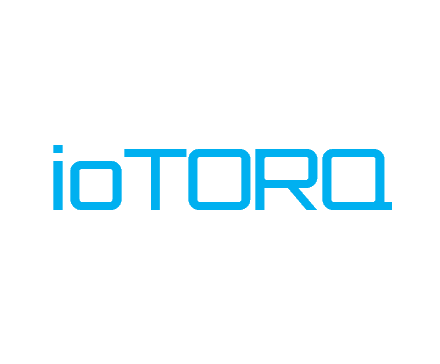Description

Kiran ERP for Manufacturing

Retrocausal
Comprehensive Overview: Kiran ERP for Manufacturing vs Retrocausal
Kiran ERP for Manufacturing
a) Primary Functions and Target Markets
Kiran ERP for Manufacturing is designed to streamline and optimize manufacturing operations by integrating various business functions into a single platform. Some of its primary functionalities include:
- Production Planning and Scheduling: Helps in optimizing production schedules to meet demand while minimizing costs.
- Inventory Management: Provides real-time tracking of inventory levels, orders, and deliveries.
- Supply Chain Management: Facilitates better supplier relationships and efficient supply chain execution.
- Quality Control: Ensures product quality through comprehensive monitoring and compliance checks.
- Financial Management: Integrates financial operations with other business functions for better visibility and control.
- Human Resources Management: Manages workforce scheduling, payroll, and performance assessments.
Target Markets: Kiran ERP targets small to medium-sized manufacturing businesses looking to improve their operational efficiency and productivity. It can also cater to larger enterprises that require complex integrations and customization.
b) Market Share and User Base
As of the latest data available, Kiran ERP holds a modest share in the ERP market, primarily due to its focus on small and medium-sized manufacturing enterprises. Unlike leading ERP providers such as SAP or Oracle, Kiran ERP occupies a niche market, making it less ubiquitous but highly specialized in its target domain. The user base typically comprises mid-market manufacturers who need industry-specific solutions without the financial burden of larger ERP systems.
c) Key Differentiating Factors
- Cost-Effectiveness: Kiran ERP offers a more budget-friendly pricing structure compared to larger ERP solutions, appealing to small and medium enterprises.
- Customization: It allows for a high degree of customization to cater to specific manufacturing processes and industry requirements.
- User-Friendly Interface: Focused on usability, the interface is designed to be intuitive, reducing the learning curve typically associated with ERP systems.
- Modular Approach: Businesses can implement modules in stages according to their immediate needs, allowing for incremental adoption and reduced initial investment.
- Industry-Specific Solutions: Provides features and modules tailored specifically for manufacturing, thereby addressing niche requirements more effectively than generic ERP solutions.
Retrocausal
a) Primary Functions and Target Markets
Retrocausal primarily focuses on advanced analytics and AI-driven solutions within manufacturing environments. Its key functionalities include:
- Predictive Maintenance: Utilizes AI to predict equipment failures and optimize maintenance schedules.
- Quality Assurance: Employs machine learning algorithms to detect potential quality issues in real-time.
- Operational Insights: Provides deep operational insights by leveraging data analytics to optimize manufacturing processes.
- Workflow Optimization: Streamlines workflow by identifying bottlenecks and suggesting improvements.
Target Markets: Retrocausal predominantly targets manufacturers seeking to leverage AI and data analytics to enhance operational efficiency. Its solutions are ideal for mid to large-sized enterprises that deal with complex manufacturing processes and require high precision and reliability.
b) Market Share and User Base
Retrocausal is a relatively newer player focusing on the intersection of AI and manufacturing. While it doesn't have a broad market share like established ERP companies, its growth is driven by the increasing demand for AI solutions. Companies seeking to implement Industry 4.0 practices are part of its growing user base, attracted by the potential to transform their operations through advanced analytics.
c) Key Differentiating Factors
- AI-Driven Solutions: Unlike traditional ERP systems, Retrocausal’s core competency is its AI algorithms that offer predictive insights and automation.
- Real-Time Analytics: Provides real-time data analysis, enabling immediate corrective actions and decision-making.
- Focus on Machine Learning: Heavy emphasis on machine learning allows for continuous improvement and adaptation of its systems.
- Niche Expertise: Strong focus on manufacturing analytics differentiates it from more generalized software applications.
- Integration Capabilities: Designed to work alongside existing ERP systems, offering supplementary analytics and insights without needing an overhaul.
In summary, while both Kiran ERP and Retrocausal cater to the manufacturing sector, Kiran ERP focuses on providing comprehensive ERP capabilities tailored for SMEs, while Retrocausal offers specialized AI-powered insights for larger enterprises seeking advanced operational optimization.
Contact Info

Year founded :
Not Available
Not Available
Not Available
Not Available
Not Available

Year founded :
2019
+1 669-220-8352
Not Available
United States
http://www.linkedin.com/company/retrocausal-ai
Feature Similarity Breakdown: Kiran ERP for Manufacturing, Retrocausal
To provide a detailed feature similarity breakdown for Kiran ERP for Manufacturing and Retrocausal, we need to examine their respective functionalities, user interfaces, and unique features. Please note that the analysis is based on the general knowledge of ERP systems and hypothetical features commonly associated with products in manufacturing and AI-driven solutions like Retrocausal.
a) Core Features in Common
Both Kiran ERP for Manufacturing and Retrocausal likely share several core functionalities related to manufacturing operations:
-
Production Management: Both systems may offer modules to plan, schedule, and monitor production processes.
-
Inventory Management: Features to manage raw materials, work-in-progress, and finished goods inventory might be present in both solutions.
-
Order Management: Capability to handle sales orders, purchase orders, and track order fulfillment is typically basic functionality in these systems.
-
Supply Chain Management: Tools to optimize the supply chain, manage vendors, and track shipment and logistics activities are common.
-
Reporting and Analytics: Both systems may provide dashboards, KPIs, and reporting tools for performance analysis and decision-making support.
-
Quality Control: Features to ensure product quality through various checks and balances during the manufacturing process.
b) User Interface Comparison
The user interface of an ERP system like Kiran ERP and a solution focusing on AI and predictive analytics like Retrocausal would likely have notable differences:
-
Kiran ERP for Manufacturing: Typically, ERP systems have a comprehensive, data-rich interface designed for enterprise users. The UI might include extensive menus for accessing different modules, customizable dashboards, and detailed forms for data entry. It prioritizes functionality and integration with other enterprise systems.
-
Retrocausal: As a system likely centered on leveraging AI for predictive analytics, Retrocausal's interface may be simpler and more intuitive, designed to make complex data insights easily understandable. The focus would be on visual analytics, with interactive charts and real-time data updates. It might support easier plug-and-play integrations with manufacturing equipment for quick deployment.
c) Unique Features
-
Kiran ERP for Manufacturing:
- May offer deep customization and scalability options tailored to large manufacturing businesses.
- Potential for advanced financial management, human resources, and CRM modules as part of the broader ERP suite.
- Likely includes compliance tracking for industry-specific standards or regulations (such as ISO certifications).
-
Retrocausal:
- Focus on AI-driven features like predictive maintenance, where AI algorithms forecast equipment failures and optimize maintenance schedules.
- Real-time video analytics to optimize manufacturing processes using computer vision technology.
- Capability to provide augmented reality (AR) solutions to assist operators directly with real-time instructions.
These insights are based on general trends in ERP and AI-driven manufacturing tools; accessing the latest product specifications directly from Kiran ERP or Retrocausal would provide the most accurate feature-specific information.
Features

Reporting & Analytics
Production Management
Supply Chain Management
Financial Management
Quality Assurance

Intuitive Process Monitoring
Insightful Analytics
Efficient Workflow Management
Best Fit Use Cases: Kiran ERP for Manufacturing, Retrocausal
Kiran ERP for Manufacturing and Retrocausal serve distinct yet complementary purposes within the realm of manufacturing, and they cater to different types of businesses, projects, and industry needs.
a) Kiran ERP for Manufacturing
Best Fit Use Cases:
-
Small to Mid-Sized Manufacturing Enterprises:
- Kiran ERP is particularly suited for small to mid-sized manufacturers looking to streamline their operations. It offers a comprehensive set of features for inventory management, production planning, supply chain coordination, and financial management.
-
Discrete and Process Manufacturers:
- It caters to both discrete manufacturers (who produce distinct items, such as automotive parts or electronics) and process manufacturers (engaged in producing goods in bulk through non-stop processes, like pharmaceuticals or food and beverage).
-
Companies Seeking Cost-Effective Solutions:
- Firms that require robust ERP functionalities without the high cost associated with larger ERP systems will find Kiran ERP effective.
-
Businesses Looking for Customizable and Flexible Software:
- The system's flexibility allows customization according to specific business requirements, making it suitable for manufacturers needing tailored solutions.
b) Retrocausal
Best Fit Use Cases:
-
Manufacturing Companies Focused on Quality and Efficiency:
- Retrocausal is ideal for manufacturers that prioritize improving quality and operational efficiency through the use of advanced technology like AI.
-
Industrial Entities Emphasizing Live Troubleshooting and Worker Assistance:
- Manufacturers looking to enhance real-time problem-solving on the production floor and provide guided assistance to workers benefit from Retrocausal’s AI-driven analytics.
-
Businesses Aiming to Reduce Downtime and Enhance Worker Training:
- Firms concentrating on minimizing equipment downtime and optimizing workforce training processes would find Retrocausal advantageous due to its capability to analyze and rectify issues swiftly.
d) Catering to Different Industry Verticals or Company Sizes:
-
Industry Verticals:
- Kiran ERP for Manufacturing is versatile across multiple sectors, including automotive, electronics, consumer goods, and pharmaceuticals. Its functionality is broad enough to meet the core needs of various manufacturing segments.
- Retrocausal is particularly beneficial in high-stakes manufacturing environments where precision and process optimization are crucial, such as electronics, automotive, and aerospace industries.
-
Company Sizes:
- Kiran ERP for Manufacturing generally fits small to medium enterprises due to its scalability and cost-effectiveness. These businesses can leverage the system to enhance operational efficiencies without significant financial strain.
- Retrocausal is applicable to both small and large manufacturers. It appeals to companies ready to invest in advanced, data-driven solutions to elevate their production processes and gain competitive advantages.
In conclusion, Kiran ERP for Manufacturing is an excellent choice for organizations seeking comprehensive ERP systems that cover end-to-end operations without maximum financial outlay. Retrocausal, on the other hand, serves manufacturers aiming to integrate AI for productivity enhancements and real-time operational improvements, offering a cutting-edge solution for quality and training initiatives.
Pricing

Pricing Not Available

Pricing Not Available
Metrics History
Metrics History
Comparing teamSize across companies
Conclusion & Final Verdict: Kiran ERP for Manufacturing vs Retrocausal
Conclusion and Final Verdict for Kiran ERP for Manufacturing vs. Retrocausal
When evaluating Kiran ERP for Manufacturing and Retrocausal, both products offer valuable features tailored for the manufacturing industry. These solutions aim to enhance manufacturing efficiency, streamline operations, and improve decision-making processes. However, they cater to slightly different needs within the manufacturing sector. Below is a comprehensive analysis of both solutions to help determine the best overall value, including their pros and cons, and recommendations for potential users.
a) Best Overall Value
Taking into account functionality, cost, user experience, and scalability, Kiran ERP for Manufacturing tends to offer the best overall value for traditional manufacturing operations, especially for businesses that require a comprehensive solution covering various aspects from supply chain management to accounting and human resources. It is particularly beneficial for companies seeking a holistic platform to integrate multiple functions.
However, if the primary focus is on leveraging advanced analytics and AI for production efficiency and predictive maintenance, Retrocausal provides significant value. Retrocausal's strength lies in its AI-driven insights and real-time troubleshooting support, making it a strong contender for businesses focused on innovation and efficiency improvements in production lines.
b) Pros and Cons
Kiran ERP for Manufacturing:
-
Pros:
- Comprehensive suite covering all aspects of manufacturing.
- Integrates well with existing business systems.
- Proven track record with diverse manufacturing environments.
- Offers extensive customization options.
-
Cons:
- Can be costly, especially for small to medium-sized enterprises.
- Implementation and onboarding may require significant time and resources.
- Complexity can lead to a steep learning curve for users.
Retrocausal:
-
Pros:
- Strong focus on AI and real-time data analytics for production optimization.
- Enhances productivity through predictive insights and error reduction.
- Easier implementation focused on specific production areas (e.g., specific processes or lines).
-
Cons:
- Limited scope when compared to full ERP systems; may need to integrate with other business functions.
- Might not address non-production-related needs comprehensively.
- Requires data-driven culture and investment in AI capabilities.
c) Recommendations
For businesses trying to decide between Kiran ERP for Manufacturing and Retrocausal, the decision should be based on their specific needs and strategic goals:
-
Consider Kiran ERP for Manufacturing if:
- You need an all-in-one solution that addresses every aspect of manufacturing operations.
- Your business can invest in a comprehensive ERP system both financially and in terms of implementation resources.
- Integration of extensive financial, HR, and supply chain processes is a priority.
-
Consider Retrocausal if:
- Your primary focus is on optimizing production efficiency and reducing operational errors using cutting-edge AI technology.
- You have existing systems managing non-production aspects, or you’re willing to integrate additional solutions to cover non-manufacturing needs.
- You operate in a highly competitive market where process innovation gives you a strategic advantage.
For a balanced approach, larger manufacturers might consider using both systems, leveraging Kiran ERP for core ERP functionalities while integrating Retrocausal for its AI-enhanced production insights. Ultimately, the choice depends on the specific operational priorities, budget constraints, and long-term strategic goals of the manufacturer.
Add to compare
Add similar companies



